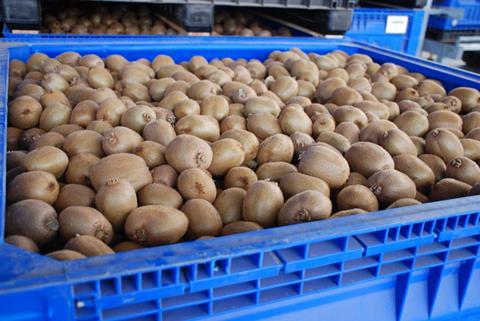The kiwifruit producer donated fruit that didn’t meet retail grade to 39 NZFN Food Hubs from July to September
New Zealand’s largest producer of kiwifruit, Seeka, has partnered with The New Zealand Food Network (NZFN) to repurpose kiwifruit that does not meet the retail grade for international or local markets.

“[While] fruit-loss is a natural part of the process, our mission is to ensure that as much fruit as possible is eligible for the retail markets,” said Seeka’s sustainability manager, Lloyd Franks.
He added that Seeka is actively exploring sustainable solutions to address fruit loss.
NZFN aims to improve food security across New Zealand and saw a natural alignment with Seeka’s objectives towards sustainability.
“At NZFN we collect, sort, and redistribute bulk surplus food nationally and get it to where it’s needed most,” explained NZFN relationship manager, Sophie Percy, who approached Seeka to assist with their donations earlier this year.
Seeka provided NZFN with kiwifruit that did not make the retail grade from July to September this year.
“Establishing this donation relationship with Seeka in the later phase of the 2024 season has been fantastic,” Percy said. “It has meant a great deal to the communities supported by our network – especially throughout the harder winter months when good nutrition and a great source of vitamin C are so important.”
The kiwifruit supplied by Seeka to the NZFN was distributed across the community through 39 of NZFN’s Food Hubs.
“They had everything set up, making it easy for us to assist them,” Franks said of the donation process. “It’s great to see this fruit redirected to benefit people in the community, especially given kiwifruit’s nutritional benefits.”
Seeka logistics manager, Jamie Cantwell, also commented on the benefits of redirecting the kiwifruit to the community.
“It’s great for our whole team and the wider kiwifruit community to see this kiwifruit, which couldn’t be sold, providing valuable nutrition to people who otherwise may not be able to access it from retail,” Cantwell said.



